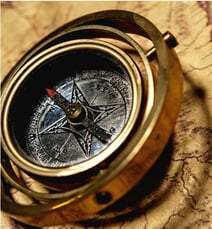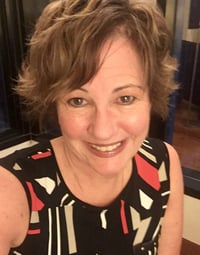A guest blog post by Jennifer Leigh Selig, Ph.D.
Doesn't everything die at last, and too soon?
Tell me, what is it you plan to do
with your one wild and precious life?
--Mary Oliver
I think a lot about how to live a meaningful life.
In childhood and young adulthood, I had some early encounters with accidents and untimely deaths that sensitized me to how easily and how quickly life could be stripped from us. When I was twenty-one, an accident of my own laid me up in bed for three months, and during that time, I contemplated the poet Mary Oliver’s question: what should I do with my one wild and precious life?
I had formative experiences on both ends of the spectrum—with the very young and the very old. From the young, my classmates and friends who died in vehicle accidents (and there were too many), I learned that living a long and full life is not a given, and that I should make the most of any time I am given. From the old, I learned, through working on a geriatric ward at a hospital, that regret over a life misspent pursuing things that do not ultimately matter, can kill the heart and soul before the body gives out. I vowed then to my friends young and old that the pursuit of a meaningful life, of living a life of purpose and on purpose, would be my vocation.
 I consider myself vocationally blessed. Through those early encounters, my internal compass was set and it guided me to the profession of teaching. This year marks my 30th year in the classroom; thirty years of following my bliss, and hopefully, leading others toward their own bliss; thirty years of listening for the gifts and talents of my students, and encouraging their unfolding; and thirty years of practicing an education for vocation: education for the fulfillment of our highest self and that self’s purpose.
I consider myself vocationally blessed. Through those early encounters, my internal compass was set and it guided me to the profession of teaching. This year marks my 30th year in the classroom; thirty years of following my bliss, and hopefully, leading others toward their own bliss; thirty years of listening for the gifts and talents of my students, and encouraging their unfolding; and thirty years of practicing an education for vocation: education for the fulfillment of our highest self and that self’s purpose.
I have also spent thirty years contemplating what gets in the way of vocational fulfillment. In the course I teach at Pacifica on vocation, and in the talks and workshops I’ve done on the topic, we spend time unpacking the reasons, which range from the psychological, to the cultural, to the socioeconomic. Psychologically, we examine how we’ve introjected the voice of our parents and how their potentially unlived vocational lives might have affected us. We also look to depth psychological terms, like shadow, persona, and complex, to see how we have constructed ourselves in ways which may not serve our highest vocational unfolding. Culturally, we look at the messages our cultural surroundings have taught us about what kind of work in the world is valued, and what kind of work we can and should do, given our gender, our race, our religion, the region we grow up in, etc. Socioeconomically, we look at class issues, and how they might limit our ability to accept our calling, and we look at the insidious problem of money, of what it means to “earn a living” and how earning a living may get in the way of living a meaningful life.
I find it necessary to do this work, unpacking the suitcase full of psychological, cultural, and socioeconomic baggage from the past, before we can repack our suitcases more purposefully, and travel forward on a more authentic and fulfilling journey. This brings up the questions of what do we pack in those suitcases now and what do we need to accompany us on this journey? Poetry, literature, film, history, and biographies give us important examples of characters, fictional and factual, who say yes to their calling, despite all the challenges inherent in the yes, in spite of all the very legitimate reasons to say no.
Mythology also has much to teach us about the journey through life, which starts with saying yes or saying no to one’s sense of calling. Calling, after all, is the etymological root of the word “vocation,” which translates into “a calling from the gods.” If you prefer a different term than “the gods,” substitute it with God, with spirit, with the universe, with intuition, or with the divine soul spark that lives within us all. There is something both immanent and transcendent about a calling; something that dwells deeply within us, and something that transcends us.
We can see this illustrated in the Christian myth of The Annunciation, one of the most visually depicted scenes from the Bible in art.

In the story, the angel Gabriel comes down and announces to the virgin Mary that she is to conceive and give birth to Jesus who will be the king of men and the highest son of God. This is the transcendent moment of calling; of feeling called by something beyond ourselves, something greater than ourselves, and a larger purpose that may transcend what our smaller selves imagined for ourselves.
In the retelling, Mary is initially frightened by this news of her calling, and she’s often depicted sitting slumped in disbelief, but after she is assured by the angel Gabriel that she’s vocationally blessed by God, she accepts. This is the immanent moment of calling, when one draws upon their inner resources and says yes to living in alignment with how we have been blessed. This is another way of saying we accept our lives as an expression of our own particular gifts and talents.
The great mythologist Joseph Campbell depicts the call as “the essence of mythology.” With students and participants in my classes, talks, and workshops, we explore other myths which speak to calling; myths like Psyche and Eros; like Plato’s myth of Er which James Hillman explores in his key text on vocation, The Soul’s Code: In Search of Character and Calling; like Campbell’s mythic pattern of the hero’s journey; and like Maureen Murdock’s pattern of the heroine’s journey. We look at calling mythologically and we look at it archetypally, like C. G. Jung did when he first understood his character as defined by two archetypal roles, that of the Scientist and the Mystic and when he sought to bring those two roles together into one profession.
The word “profession,” etymologically speaking, comes from the professing of vows. While initially it was narrowly used to define the profession of priesthood, it later came to represent any work we do in the world. Personally, I prefer the earlier meaning. I like to imagine that the work we do in the world is a profession of sorts, where we are professing what matters most to us in life, and what we find most meaningful and valuable in life. In our professions lay our vows, what we vow to do with our vocational lives on behalf of our values.
I made my vows early on, professing the value of an education for individuation, which I contrast with the education for information that defines too much of our educational system. I have devoted thirty years to this calling and, if I’m lucky, I will have thirty more years. For people who have yet to find or follow their calling, for the very young and the very old and everyone in between, this I know: it is never too early or too late to let your life speak, to profess your values through the work you do in the world. Whether you’re in the morning, the afternoon or the evening of your life, you were called into this world by something transcendent. Immanent within you is the divine grace to accept the call and give freely of your gifts, from your giftedness. Your life is wild and your life is precious. Plan the rest of it accordingly.
 Join Dr. Selig in her upcoming onsite and online program, 'Deep Vocation: Recovering Your Soul's Purpose, Power, and Pleasure' beginning September 17th, 2018. For more information or to register, visit: www.retreat.pacifica.edu.
Join Dr. Selig in her upcoming onsite and online program, 'Deep Vocation: Recovering Your Soul's Purpose, Power, and Pleasure' beginning September 17th, 2018. For more information or to register, visit: www.retreat.pacifica.edu.

Jennifer Leigh Selig, Ph.D. Jennifer joined Pacifica’s faculty in 2005, and has served as Chair and Research Coordinator in the Depth program before moving into her current role as core faculty. Her books include Thinking Outside the Church: 110 Ways to Connect With Your Spiritual Nature, Reimagining Education: Essays on Retrieving the Soul of Learning, Reimagining Education: Essays on Reviving the Soul of Learning, The Soul Does Not Specialize: Revaluing the Humanities and the Polyvalent Imagination, which she co-edited with Dr. Dennis Slattery, Mythological Studies Core Faculty; and Integration: The Psychology and Mythology of Martin Luther King, Jr. and His (Unfinished) Therapy With the Soul of America.



